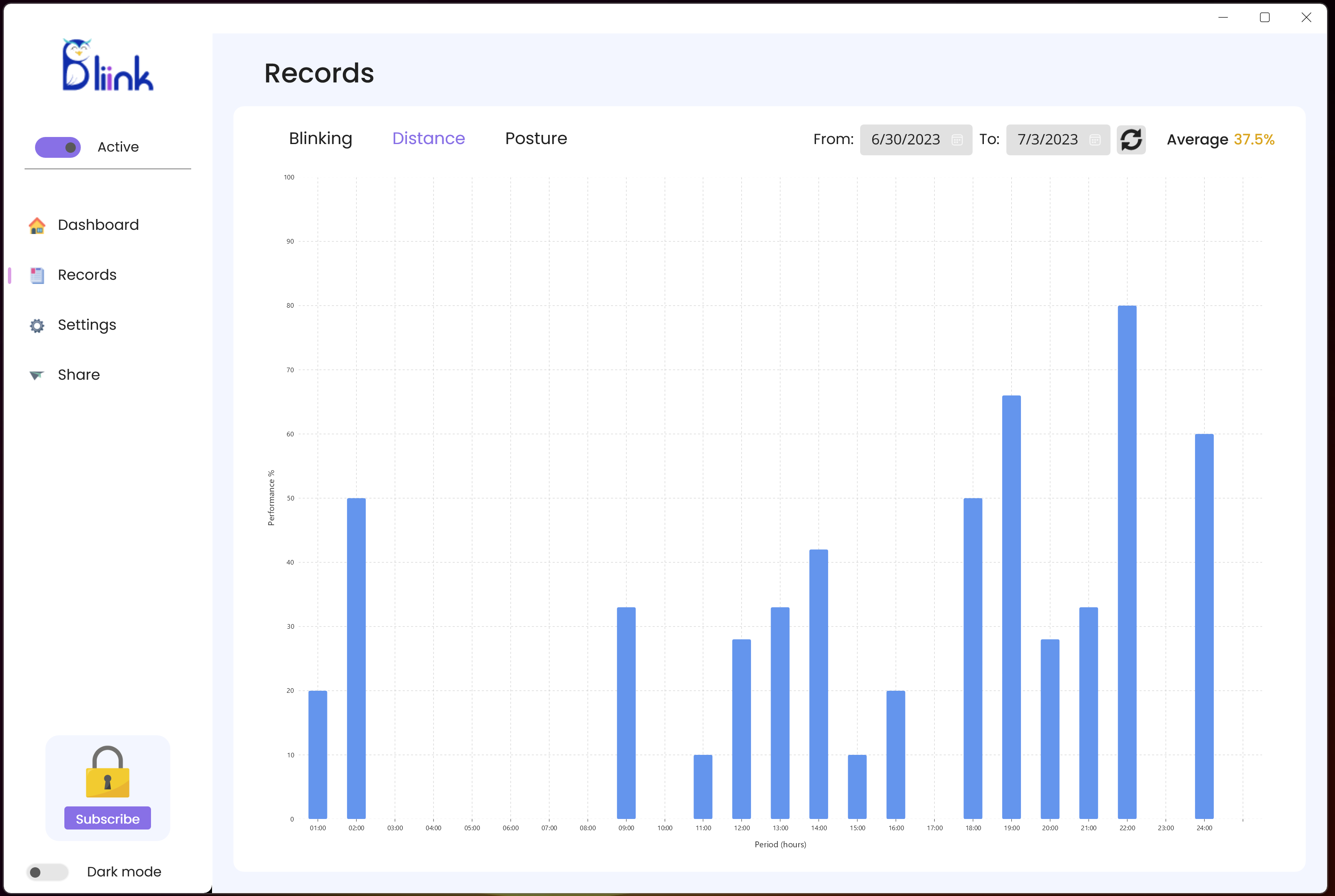
Picture a world where you're not chained to a desk in a traditional office but have the freedom to work from wherever your heart desires. Remote work has become a popular trend in recent years due to its numerous benefits, including improved work-life balance, increased productivity, and time saved on commuting. However, it's crucial to understand that remote work also presents challenges and potential downsides of remote work can impact various aspects of our lives.
A report by Global Workplace Analytics highlights that remote workers are more likely to work longer hours. On average, remote workers put in an additional 1.4 more days per month than their office-based colleagues. This increased workload can lead to exhaustion and a confusing work-life boundaries.
As we continue to explore the world of remote work, we realize that navigating this path requires curiosity and resilience. While the appeal of flexibility and freedom attracts us, we must also face the potential difficulties that lie ahead in this area.
But don't worry, there is a solution, we reveal a ray of sunshine: BLiiNK! This revolutionary platform is like a superhero that charges your remote work productivity. With Bliink as your faithful companion, you'll have a set of tools to conquer the obstacles of working from home. Bliink orchestrates a perfect harmony of communication, collaboration, and project management by combining forces with your favorite collaboration tools. It's like a magic device that turns your remote work experience into success!
In this article, we will explore the pros and cons of remote work. We will examine the drawbacks of remote working for employers and employees, and 5 effective approaches to conquer them.
What are the Benefits of Remote Working?


Better work-life balance is one of the remarkable advantages remote work offers. Let's explore the numerous advantages that remote work offers.
Better work-life balance
In the world of remote work, personal and professional life blend together harmoniously. Imagine a life without strict nine-to-five schedules, where you have the power to control your freedom as a remote worker. Embrace the moments that bring you joy and fulfillment, like taking a midday yoga break, spending time with loved ones, or pursuing your hobbies. Remote work allows passion and productivity to coexist, creating a fulfilling lifestyle.
Control over commute
Say goodbye to the nonstop battle against traffic jams and crowded trains. Remote workers enjoy the freedom of saving time. Picture yourself in the comfort of your home office or finding inspiration in a cozy café. Forget about daily commutes as remote work lets you choose where to work, sparking your creativity. With remote work, you have the freedom to create your perfect work environment based on what you prefer and need.
Work from anywhere
Remote work opens up a world of possibilities where your workspace isn't restricted to a single place. Picture yourself coming up with ideas while enjoying a stunning view of a tropical paradise, where the sound of ocean waves sparks your creativity. Or maybe you prefer working in a lively city, drawing inspiration from its sights and sounds. Remote workers have the freedom to choose their preferred work environment and embrace diverse experiences that enhance their professional journey. It could be a comfortable home office, a cool coworking space, or a peaceful park – the whole world becomes your office.
Access to more opportunities
Embrace the liberating nature of remote work as it goes beyond traditional office limitations, opening the door to a global talent network and exciting opportunities. Remote work breaks down barriers, granting access to a global talent network and exciting prospects. Collaborate with colleagues from different parts of the world, bringing together diverse perspectives and skills. Remote work empowers you to shape your career on a global level, breaking free from the limitations of location and embracing endless possibilities.
The Downsides of Remote Working


Remote work, with all its perks, brings along a fair amount of challenges. From distractions at home to the isolation that comes with working remotely, there are challenges to overcome. The fine line between work and personal life can blur, and the need for more virtual meetings and reliable internet access becomes apparent. The delicate distinction between work and personal life can blur, and the need for more virtual meetings and reliable internet access becomes apparent. However, by understanding and addressing these issues, remote workers can create a balanced and productive work environment that maximizes their potential for success in the remote work landscape.
Distractions at home
One of the significant challenges of remote work is the potential for increased distractions at home. Without a structured office environment, remote workers may face interruptions from family members, household chores, or external noise. These distractions can hinder productivity and slow down work progress. However, with advanced solutions like BLiiNK, remote workers can effectively manage their tasks and minimize distractions, allowing them to stay focused and accomplish their work efficiently.
Isolation and reduced collaboration
Remote work often leads to isolation, as individuals are physically separated from their colleagues. Building relationships, fostering trust, and effective collaboration becomes more challenging when communication primarily relies on virtual channels. The lack of face-to-face interactions can slow down teamwork, innovation, and cohesive work dynamics. According to a survey conducted among individuals who work from home, 10% expressed a lack of connection with their colleagues, 54% reported feeling somewhat connected, while only 36% indicated a strong sense of connection.
Loss of work-life balance
While remote work can provide a better work-life balance, it can blur the boundaries between work and personal life. With a clear separation between the physical workspace and the home environment, remote workers may find it easier to disconnect from work, leading to longer work hours and decreased personal time. However, remote workers can establish a healthy work-life integration with the help of productivity-enhancing platforms like BLiiNK. Bliink's task management and prioritization features empower individuals to set boundaries, allocate their time effectively, and strike balance between work and personal commitments.


Increased need for meetings
Remote work often requires more meetings and communication compared to in-person appointments. The reliance on emails, phone calls, and virtual meetings can be time-consuming and less efficient than face-to-face interactions. The need to stay connected with colleagues and keep track of important developments may increase remote workers' workload.
Unstable or inconsistent internet access
Another significant challenge faced by remote workers is unreliable or inconsistent internet access. Poor connectivity can disrupt communication, hinder access to essential resources, and affect productivity. Additionally, working from home may provide a different level of technological framework and resources than an office environment, further provoikng these challenges.
Navigating Remote Work Challenges: Empowering Employers for Success
Remote work: a world of possibilities for employees, yet a path crowded with different challenges for employers. But don’t worry! By recognizing and embracing these challenges head-on, employers can produce a thriving remote work environment that ignites success. Let's dive into the key areas that demand our attention:
Monitoring and Accountability
Releasing the potential of remote workers while providing productivity and accountability can feel like traversing uncharted terrain. However, with a well-thought-out plan, employers can set clear expectations, monitor progress, and encourage responsibility. Embrace modern project management tools and establish measurable goals to guide the way toward achieving optimal performance.
Communication and Collaboration
Remote work, while offering flexibility, can sometimes cause communication and collaboration challenges. However, with the right approach, it's possible to overcome them. Emphasize open communication channels and encourage regular interaction among team members. By using video conferencing, instant messaging, and collaboration platforms, you can facilitate smooth communication and foster collaboration that works harmoniously.
Maintaining Company Culture
Building a strong company culture in the remote work landscape might appear challenging, but don't be concerned! Employers, it's your opportunity to shine and reinforce these cultural aspects with your visionary approach. Be creative in fostering a sense of belonging and engagement among your remote team members. Plan virtual team-building activities, schedule regular check-ins to maintain connections, and celebrate accomplishments with enthusiasm. By embodying your company's values and mission, you create a unified culture that goes beyond physical boundaries.
Cybersecurity Measures
In the vast digital world, where data protection is crucial, cybersecurity risks are present. However, there is no need to worry. Employers, it is your responsibility to strengthen your defenses. Implement robust security protocols, including secure remote access and encrypted communication channels.
Educate your team about cybersecurity best practices. By doing so, you will safeguard sensitive information and maintain the trust of all those within your digital domain. With courage, adaptability, and creativity, employers can overcome the challenges of remote work and empower their teams to achieve success. Embrace this opportunity to lead and witness the positive outcomes that follow.
Conquering Remote Work Challenges
To overcome the remote working disadvantages, it's crucial to embrace effective strategies and best practices. These approaches can help individuals and employers overcome obstacles, optimize productivity, and foster well-being in the remote work environment. Here are some powerful approaches to consider:
Establishing a dedicated workspace
By transforming a specific area within your home into a designated workspace, you create a game-changing environment. This physical boundary serves as a clear separation between your work and personal life, creating a psychological shift that enhances your focus and productivity. With a dedicated workspace, you minimize the potential distractions that may arise from your home surroundings. This deliberate distinction provides a mental signal that it's time to dive into your tasks with renewed energy and concentration. Whether it's a corner in your living room, a spare room converted into an office, or a cozy nook in your bedroom, creating a dedicated workspace empowers you to fully immerse yourself in your work, unlocking a new level of efficiency and productivity.
Prioritizing communication and collaboration
The key to remote work success lies in prioritizing communication and collaboration. In fact, statistics show that clear and regular communication is the cornerstone of effective remote teams. According to a study by Buffer, 97% of remote workers believe that good communication is crucial for their success. Both employers and remote workers should make it a priority to establish effective communication channels that foster collaboration, maintain alignment, and strengthen relationships. Embracing a variety of communication tools is key to overcoming the challenges of physical distance.Prioritizing communication and leveraging the variety of available tools empowers remote teams to conquer the challenges of distance and maintain a strong sense of connection.
This cherishes a culture of collaboration, innovation, and belonging within the team. Clear and regular communication goes beyond strengthening team dynamics; it also guarantees that everyone is well-informed.This alignment leads to increased productivity and overall improved work outcomes.
Setting boundaries and managing work-life balance
Establishing boundaries is key to maintaining a healthy work-life balance while working remotely. Define set working hours and follow them diligently. Take regular breaks throughout the day to recharge. Importantly, disconnect from work-related tasks outside of your defined working hours. Setting clear boundaries creates space for personal time, allowing you to nurture relationships, pursue hobbies, and refresh your mental and physical well-being. This approach guards against burnout and promotes a harmonious work-life integration.
Investing in reliable technology and infrastructure
Building a strong technological foundation is key to rocking remote work. Make sure you have a reliable internet connection that won't let you down mid-Zoom call. Keep your software up to date and use the latest gadgets and gear that support your work.
Don't hesitate to collaborate with your employer and let them know if you need any tech assistance. By investing in reliable technology and infrastructure, you'll say goodbye to disruptions and frustrations, and instead, work consistently in remote work. Investing in the right equipment is a game-changer when it comes to remote work. Whether it's a reliable laptop or desktop computer, a comfortable and ergonomic chair, or a high-quality headset, having the right supplies enhances your productivity and work experience in general.
Implementing cybersecurity measures
As remote work expands, it is essential to prioritize cybersecurity to protect sensitive information and maintain data integrity. Employers must establish secure remote access protocols, educate employees about cybersecurity best practices, and enforce strong password management and data protection measures.
Remote workers should be careful in following these guidelines, utilizing secure networks, and employing encrypted communication channels. By prioritizing cybersecurity, individuals and organizations can confidently operate, knowing that their data is safe and protected.
By implementing these strategies, remote workers and employers can overcome downsides of remote work and create an environment that fosters productivity, collaboration, and well-being. Embrace these approaches and navigate the remote work landscape with resilience and success.
Empowering Remote Workers: Overcome Challenges with Bliink
Embrace the solution that conquers the challenges of remote working while charging productivity. Say hello to Bliink, an innovative platform precisely created to empower remote workers, helping them conquer the struggles of working from home. Bliink integrates with your existing collaboration tools, providing an all-inclusive set of features that simplify communication, collaboration, and project management.
With Bliink, you can optimize your focus and minimize distractions. This innovative platform equips you with intelligent task management and prioritization tools, ensuring you stay organized and on track between the potential interruptions that working from home may bring. Bliink's interface is intuitive and easy to use, improving communication and collaboration. Connecting with your team, sharing ideas, and working together has never been so effortless.
Bliink boasts various innovative features that set it apart from the rest. Real-time project tracking, automated progress updates, and powerful analytics empower you to monitor individual and team performance precisely. Witness the magic of clear visibility into workloads and progress, allowing you and your employer to ensure accountability, spot bottlenecks, and make informed decisions to optimize productivity.
Bliink goes the extra mile to combat isolation and support a sense of belonging through virtual social features. By cultivating a vibrant remote work culture, Bliink enhances employee engagement and overall well-being, ensuring you never miss out on the social aspect of working together.
In a world where remote work is the new norm, Bliink shines as a game-changer, bridging the gap between remote workers and their colleagues. It equips you with the tools to overcome various challenges. Say goodbye to the productivity burden and hello to a new era of efficiency, collaboration, and success. Don't just take our word for it—experience the BLiiNK difference firsthand.
Conclusion
In conclusion, there are pros and cons of remote working like any other endeavor. While it offers the freedom to escape the traditional nine-to-five grind and work from the comfort of your home, it also poses challenges of remote working that need to be addressed.
One of the downsides of remote work is the constant battle against distractions at home. Another bummer is the feeling of being stranded on a remote island, except that island is your home office. When your workspace is your living space, the boundaries start to blur. Suddenly, you find yourself answering emails at 10 p.m. in your pajamas, wondering when your personal life became a 24/7 office.
As you navigate the world of remote work, remember that while there are challenges to overcome, there are also tools and strategies available to make it a rewarding and successful experience. Choose BLiiNK as your trusted platform to free the full potential of remote collaboration and enjoy the benefits it brings.
